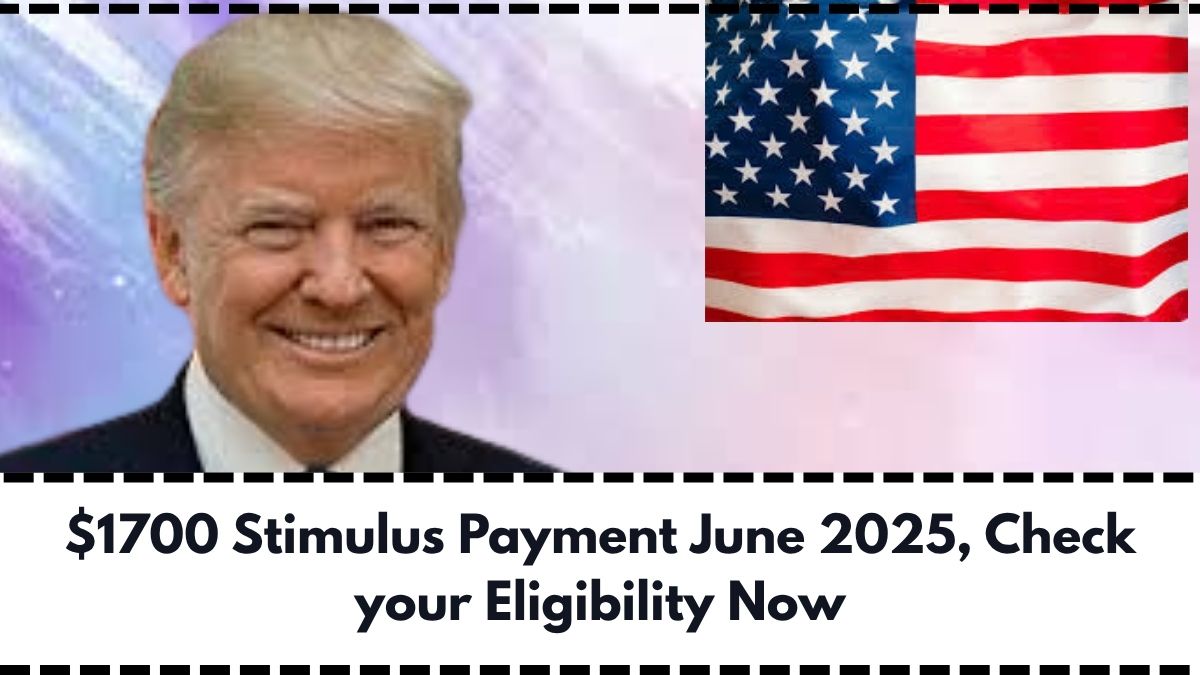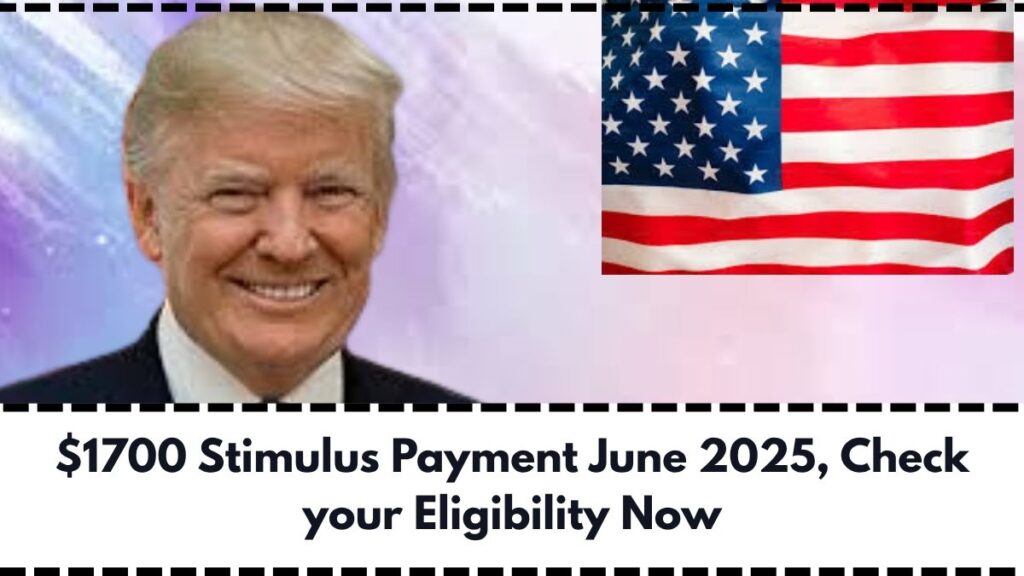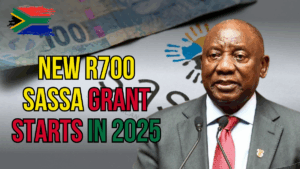As Americans continue grappling with high inflation, increased housing costs, and rising living expenses, rumors of a new $1700 stimulus payment scheduled for June 2025 have attracted significant public attention. However, it is important to clarify that no such federal stimulus check has been officially approved.
Instead, several legitimate economic relief programs are currently available at federal, state, and local levels. This article outlines those programs, clears up common misconceptions, and provides links to official government resources to help Americans avoid misinformation.

Summary Table
Topic |
Description |
|---|---|
Federal $1700 Stimulus Check |
No such federal payment is confirmed for June 2025 |
IRS Recovery Rebate Credit |
Up to $1,400 automatic payments for unclaimed 2021 stimulus credit |
Pandemic Stimulus |
Ended after the third round in 2021 |
State Relief Programs |
Active in CA, GA, and proposed in FL |
Local Income Pilots |
Monthly payments offered in selected cities like Sacramento |
Avoiding Scams |
Use only official sites like irs.gov |
Best Financial Steps |
Claim tax credits, check state aid, avoid misinformation |
Federal Relief Efforts in 2025
1. IRS Recovery Rebate Credit Payments
The IRS began issuing automatic Recovery Rebate Credit payments in late 2024 and early 2025. These payments, worth up to $1,400 per eligible person, were targeted at individuals who did not claim the 2021 Recovery Rebate Credit, which was part of the third stimulus check under the American Rescue Plan Act.
-
Eligibility: Taxpayers who filed 2021 returns but left the Recovery Rebate Credit section blank or filled it incorrectly.
-
Delivery: Payments are sent via direct deposit or check, based on IRS records.
-
Notification: A letter is sent by the IRS explaining the reason for the payment.
2. No New Universal Federal Stimulus
The last federally approved direct relief payments were part of the 2021 stimulus package. Since then, no new direct stimulus checks—including the rumored $1700 check—have been authorized.
3. Focus on Targeted Support
Instead of broad payments, the federal government has turned to targeted economic relief, including:
-
Student loan debt relief
-
Energy and utility assistance
-
Rental and housing support
-
Tax credit expansion proposals
State-Level Relief Programs in 2025
Many U.S. states have leveraged budget surpluses to implement direct assistance measures:
California: Guaranteed Income for Families
-
Program: Family First Economic Support Pilot (FFESP)
-
Start Date: June 2025
-
Details: $725/month for 200 low-income families with children aged 0–5
-
Duration: 12 months, ending July 2026
-
Eligibility: Must reside in select Sacramento County ZIP codes and meet income thresholds
Georgia: Annual Tax Rebates
Georgia continues its third year of state rebates:
-
Amount: $250–$500 depending on filing status and tax liability
-
Eligibility: Based on previous year’s tax returns
-
Purpose: Return surplus revenue directly to taxpayers
Florida: Property Tax Rebate Proposal
A proposed $1,000 rebate program aims to:
-
Target: 5.1 million homeowners for school tax relief
-
Status: Not yet passed—pending legislative approval
-
Criticism: Would not help renters or low-income families without property
Local and City-Based Relief Programs
Guaranteed Income Initiatives
Several cities have launched monthly payment pilot programs aimed at reducing poverty and improving outcomes:
-
Sacramento: FFESP offers targeted aid to young families
-
Stockton & Los Angeles: Prior pilot programs demonstrated improved food and housing stability
Targeted Assistance
Local governments and nonprofits also continue to offer:
-
Emergency housing grants
-
Utility bill support
-
Food aid
-
Healthcare subsidies
These programs often have limited funding and specific eligibility but provide crucial support.
Misinformation and the $1700 Stimulus Rumor
Despite widespread claims, there is no $1700 stimulus check approved by the federal government for June 2025. Speculative programs such as the “DOGE stimulus” proposing $5,000 checks based on efficiency savings are not backed by any legislation.
Red Flags to Watch For:
-
Requests for personal or banking information via email
-
Websites promising payments in exchange for fees
-
Social media accounts promoting fake checks or giveaways
Always verify claims on the official IRS website:
https://www.irs.gov/coronavirus/economic-impact-payments
How to Access Legitimate Economic Relief
1. Use Available Tax Credits
-
Earned Income Tax Credit (EITC)
-
Child Tax Credit (CTC)
-
American Opportunity Credit for students
These credits often provide more lasting financial support than one-time stimulus checks.
2. Monitor Your State’s Department of Revenue
Each state maintains its own relief or rebate programs. Sign up for email alerts or visit state websites to stay informed.
3. Check for Local Assistance
City or county programs often provide quicker access to aid than state or federal programs. Local government websites and community centers can guide you.
Frequently Asked Questions (FAQs)
Q1: Is there a $1700 federal stimulus check in June 2025?
No, there is currently no confirmed federal payment of $1700. Any claims stating otherwise are inaccurate.
Q2: What is the IRS Recovery Rebate Credit in 2025?
It is an automatic payment issued to taxpayers who were eligible for the 2021 stimulus but failed to claim it. Payments of up to $1,400 have been sent starting in December 2024.
Q3: Which states are offering economic relief in 2025?
States like California, Georgia, and potentially Florida have current or proposed programs. Other states may also offer local-level initiatives.
Q4: How do I avoid stimulus payment scams?
Only trust official sources like irs.gov or your state’s revenue department. Avoid clicking on suspicious links or providing personal information to unknown contacts.
Q5: What financial support should I explore if I’m struggling?
Look into:
-
Tax credits (CTC, EITC)
-
SNAP benefits
-
Housing and energy assistance
-
Local guaranteed income pilots
-
Nonprofit emergency aid
Conclusion
While the rumored $1700 federal stimulus payment for June 2025 is not real, many authentic and impactful economic assistance programs are available across the country. Americans are encouraged to avoid misinformation and instead explore targeted support, tax credits, and state-level relief initiatives that can provide meaningful financial help.
For More Information Click Here







